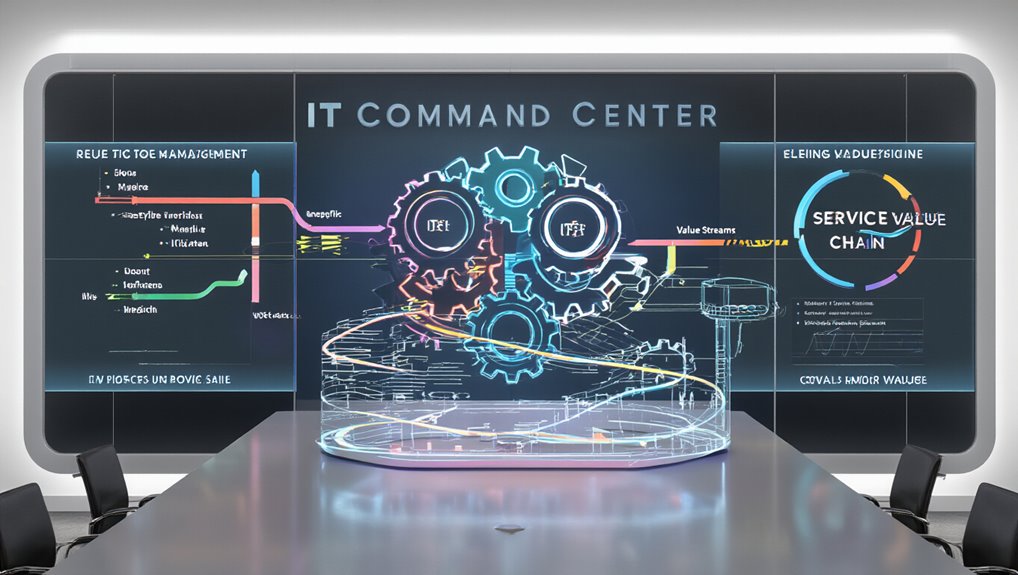The evolution of project management within ITIL 4 represents a significant shift from traditional approaches to a more holistic, service-oriented framework. Unlike conventional project management that primarily focuses on scope, schedule, and budget, ITIL 4 redefines projects as temporary endeavors specifically designed to create value through service improvement or innovation. This fundamental redefinition challenges project managers to think beyond deliverables and consider how their work contributes to the broader service ecosystem.
ITIL 4’s approach integrates project management with its four dimensions of service management. These dimensions expand a project manager’s considerations to include:
- Organizations and People – focusing on culture and competencies
- Information and Technology – leveraging tools and data effectively
- Partners and Suppliers – collaborating with third parties
- Value Streams and Processes – optimizing workflows for value creation
Traditional IT project management often operates in isolation, while ITIL 4 positions projects within a thorough service value system. This integration means project activities must align with the organization’s strategic goals and support continuous adaptation to evolving customer needs. Project managers must now evaluate success not just by on-time delivery, but by how effectively their outcomes enhance service value. The ITIL service value chain provides a flexible operating model for creating, delivering, and continuously improving services through interconnected activities. Information Technology Service Management frameworks ensure prompt resolution of IT-related issues while maintaining alignment with business objectives.
The seven guiding principles of ITIL 4 further transform project execution. “Focus on Value” directs all project decisions toward maximizing stakeholder benefits. “Start Where You Are” requires assessment of current conditions rather than assuming a blank slate. “Progress Iteratively with Feedback” promotes adaptive approaches over rigid planning. These principles foster a more responsive and value-centered project environment.
ITIL 4 positions project management as one of 34 management practices that must work in concert with portfolio management, organizational change management, and risk management. This interconnected approach guarantees projects serve as catalysts for organizational transformation rather than isolated technical implementations. Creating a detailed Service Management Plan is essential to outline how Service Management principles will be applied throughout the entire project lifecycle.









